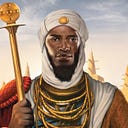Colonialism’s Residue: The African Private Sphere Then and Now
In today’s global conversation, we often overlook the deeply entrenched effects of history on our daily lives. From the tea we sip to the way we conceive family and individuality, the marks are indelible. Here, we dive into the complex interplay between colonial legacies and the evolution of private life in Africa — a theme whose resonances echo across continents and through time.
Colonialism was not a chapter but a novel, a sprawling epic that wrote itself into the identity, culture, and very homes of Africans. So potent were its imprints that they linger today, shaping how the private sphere in Africa has evolved. One cannot truly grasp this impact without acknowledging that it’s a two-way street. As W.E.B. Du Bois encapsulated in the idea of “double consciousness,” the African identity is forever changed, yet forever powerful, continuously redefining itself in the face of colonial legacies.
Now let’s slow down and savor the wisdom in the African proverb, “If you want to go fast, go alone. If you want to go far, go together.” This adage encapsulates a cornerstone of African community life. Before the heavy hand of colonial rule, the African private sphere was a tapestry woven tightly by the threads of community and family. An Asian counterpart to this collectivism can be found in Confucianism, which also places high regard on family values and communal living. What emerges is a global dialogue, a confluence of philosophies that transcend borders and color, speaking to the universal desire for communal stability.
You know the routine. Every morning, we all engage in rituals that make us who we are. Maybe it’s a cup of Ethiopian coffee or Japanese matcha; these are little pieces of history we ingest every day. These everyday practices, from the spices in our foods to the call and response in our spiritual practices, have been shaped by centuries of cultural interaction, colonization, and resilience. These daily habits connect us to a story much larger than ourselves, often without us even knowing it.
Feel that? It’s the emotional resonance in our collective memory when we hear old songs or stories — those that bring either a smile to our faces or a tear to our eyes. Humor and sorrow co-exist in this space, offering an emotional vibrancy that feeds our spirit. Whether it’s a stand-up comedy that channels the audacious wit of Richard Pryor or a folk tale that delves into profound moral lessons, these are more than mere entertainment. They are history’s pulse, kept alive through our private lives and personal interactions.
But this isn’t just about looking back. As we glance into the future, the threads of the past continue to weave through our modern fabric. Take entrepreneurship, for example. Today’s young Africans are blending traditional wisdom with modern innovation, carving new pathways that honor the old while welcoming the new. This complex dance of history, private life, and progress is not exclusive to any one culture — it’s a global narrative, as compelling as it is intricate, inviting us all to take part in shaping the next chapter.
